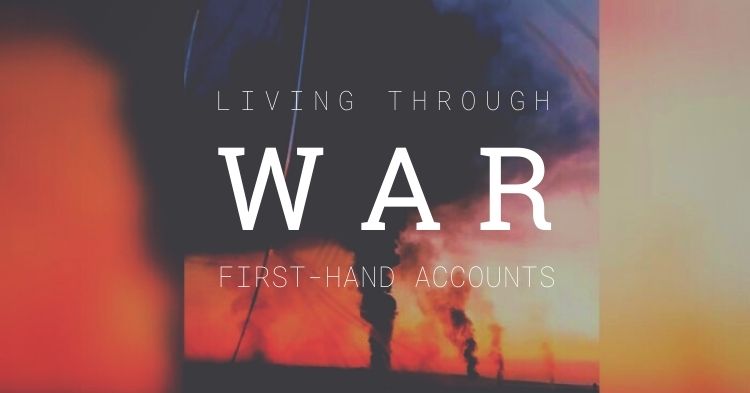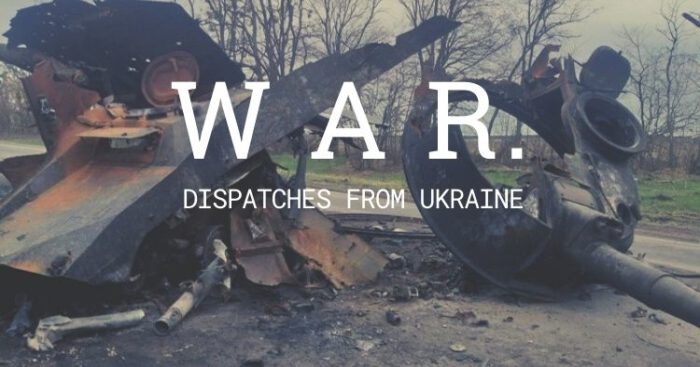The town of Makariv is a small quiet picturesque place in the Kyiv Oblast. For a long time, it was famous for being one of the ancient settlements of the Kyivan Rus.
But now Makariv is infamous for the atrocities that were committed by the Russian soldiers during a one-month-long occupation of the town. Here Russians killed more than 150 people, all civilians.
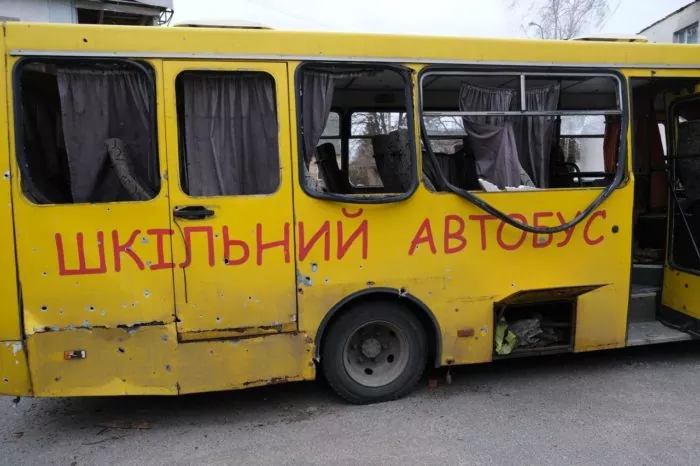
Those who were lucky to survive had to live in cellars for the whole month. The Russians occupied only two districts in Makariv – the north and the south. The other town districts were constantly and heavily shelled by rockets, and mortars, and bombed by aircraft and helicopters.
Russians destroyed many objects of the civilian infrastructure. A newly-build medical center, new kindergarten, many private houses, and public buildings are almost destroyed. Many people who tried to flee were mercilessly killed by Russian soldiers. When Russians left, smashed and burnt cars with corpses inside were lining up on the road out of Makariv.
!function(){“use strict”;window.addEventListener(“message”,(function(e){if(void 0!==e.data[“datawrapper-height”]){var t=document.querySelectorAll(“iframe”);for(var a in e.data[“datawrapper-height”])for(var r=0;r<t.length;r++){if(t[r].contentWindow===e.source)t[r].style.height=e.data["datawrapper-height"][a]+"px"}}}))}();
I left for Makariv early in the morning and drove down the highway that had been controlled by the Russian military. Now it is filled with the burnt-down remnants of Russian tanks, APCs, and military trucks. Their charred skeletons are like real magnets for the passers-by.
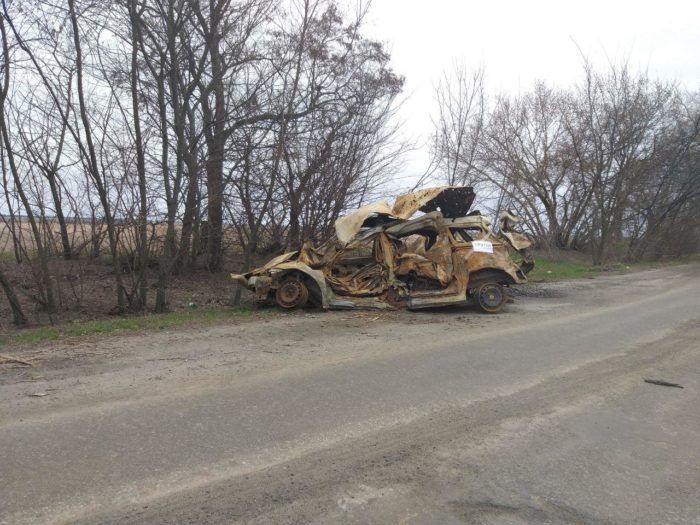
Makariv greeted me with very unpleasant weather of strong northern wind and cold drizzle. I saw many destroyed buildings on the way to the town center. A man with a broom was standing near one of such buildings vigorously sweeping the street. When I tried talking to him, he started to mumble as if he were still in shock. The only thing I could understand was that before the invasion he owned an auto shop here – bombardments left only charred walls out of his shop.
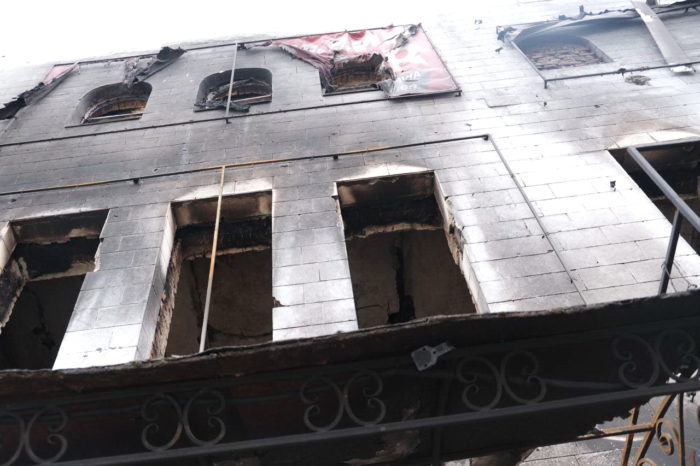
He explained that sweeping the road near the ruins is his way to calm himself down. Together we counted 12 shell artillery craters around. There is no explanation why Russians were shelling the area so hard – at that time, Ukrainian troops were not even close. And the building of the bakery plant stands across the road also destroyed to the ground.
I drove on to the city center. At the steps of what looked like a public building, there was a queue of mostly elderly people. Here they were getting humanitarian aid – loaves of bread, bottles of water, and containers with ready prepared food. It looked like people were especially grateful for the bread. Each of those who received a loaf immediately tried to bite and smack it with pleasure.
People invited me into the building though it was dark inside, and I saw only a ray of light from a cellphone that was used as a flashlight. A middle-aged woman held it in her hand while trying to read the list of names in front of her.
Her name was Natalia. Previously, she worked as a cultural program coordinator at the Makariv Cultural Center. But after the beginning of the war, together with the director of the center by the name of Lyudmila she has organized a shelter in its building.
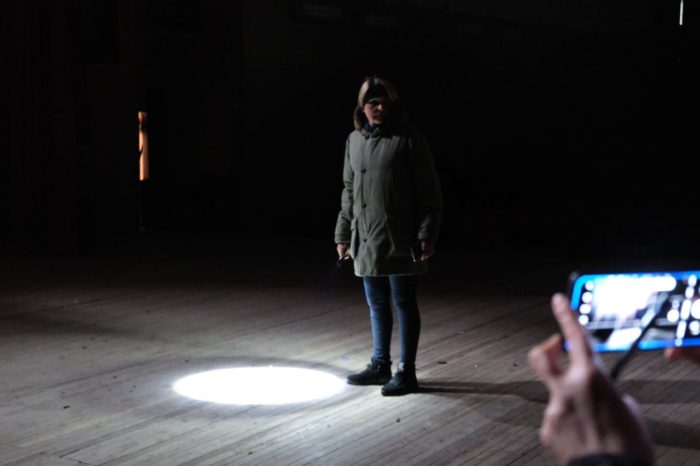
Natalia asked me to wait for a few seconds while she made herself pretty, combed her hair, and wiped the tears from her eyes. She explained that, ib her opinion, today Ukrainian women should look especially beautiful – and strong at the same time. Natalia was both.

She and Lyudmila had sheltered more than 200 people inside the Cultural Center. Natalia showed me the place where people were hiding from the bombings. But one day a local collaborator informed Russians about this place. And Russians responded in an instant: they shelled it from artillery and mortars. Three civilians were killed, the upper floors of the building were destroyed, and evacuation buses standing nearby were burned down.
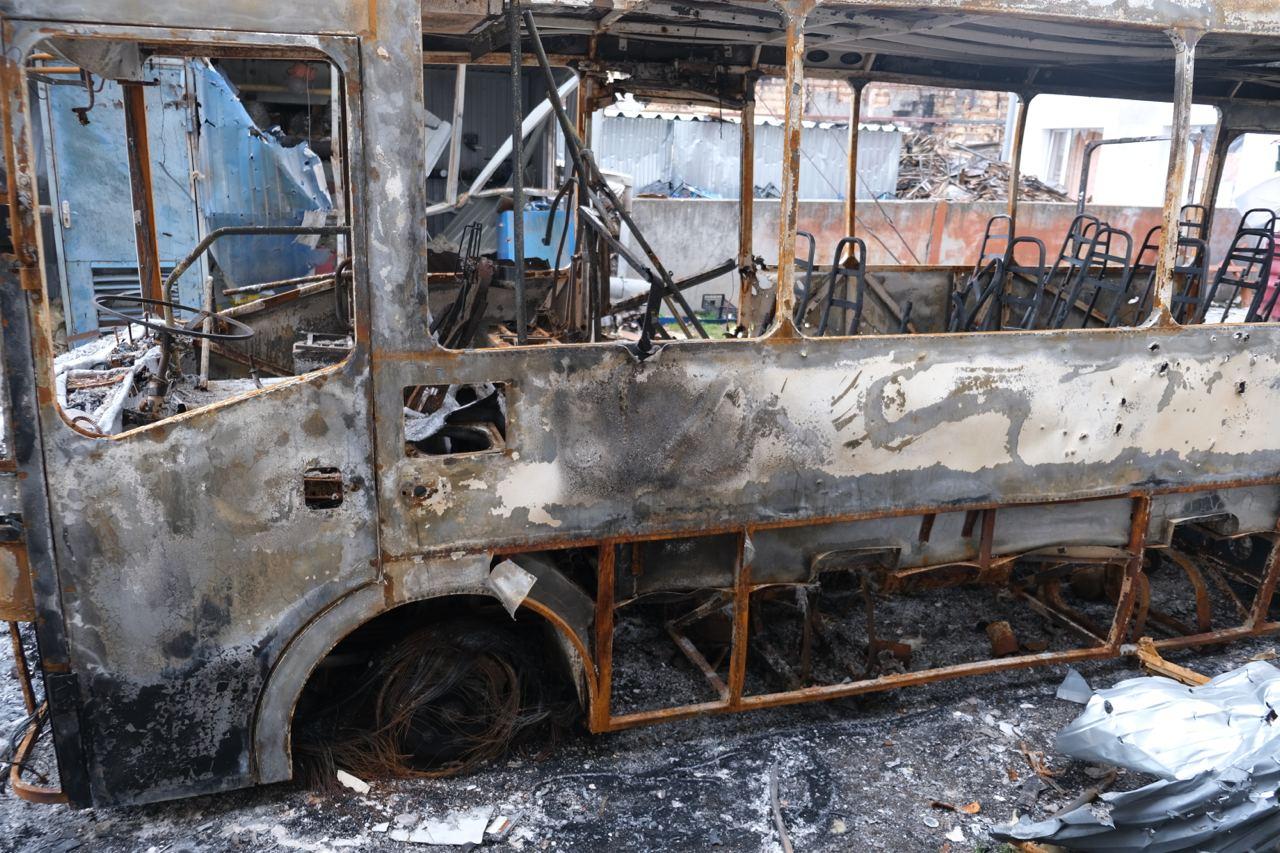
Speaking of that, Natalia couldn’t help but cry. There were no other places in town to hide in, and Natalya with Lyudmila managed to arrange some other busses and helped the survivors to get out of this hellhole to Western Ukraine.
While we were talking, more people came to get food, and I couldn’t make them wait for Natalia. This is a story about a heroic Ukrainian woman. She lives in Makariv but is only one of the many Ukrainians who devoted themselves to helping people to survive in that war.
- Bucha massacre: Ukraine urges ICC to gather evidence of Russian war crimes
- “Russian invaders gunned down a car with children” – Ukrainian family who escaped besieged city
- “They were shot in the back of the head.” Eyewitness account of Russia’s murders of Bucha residents
- Russia turned Bucha into one big torture chamber. Dispatch from Ukraine


